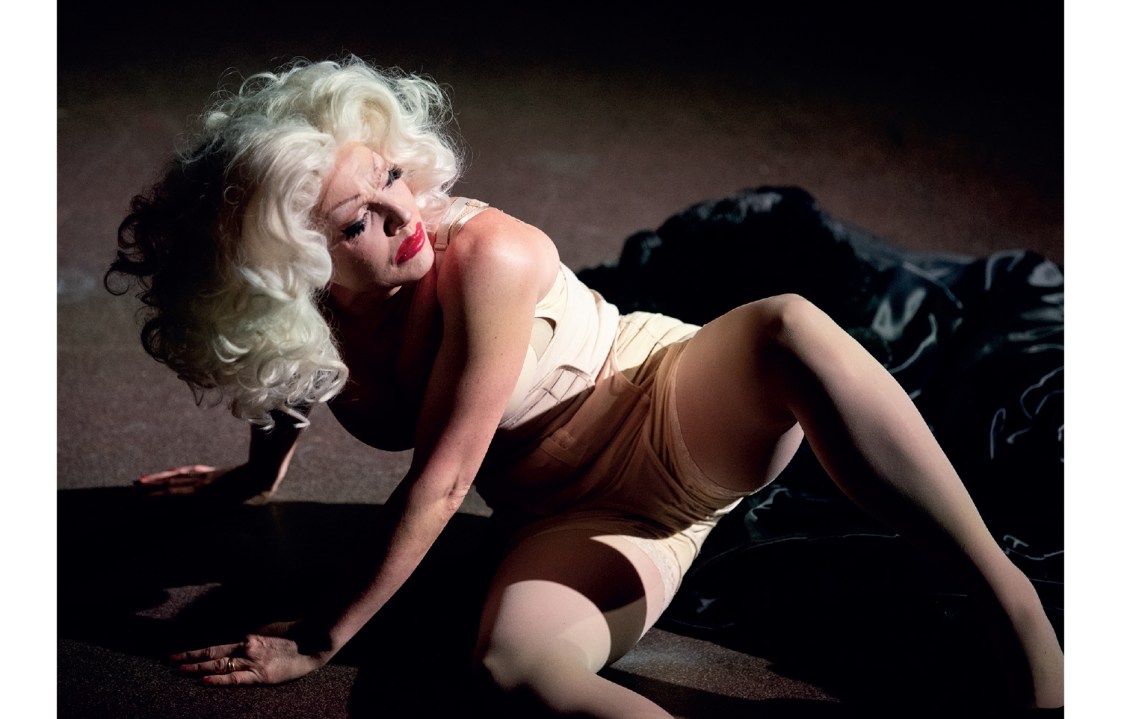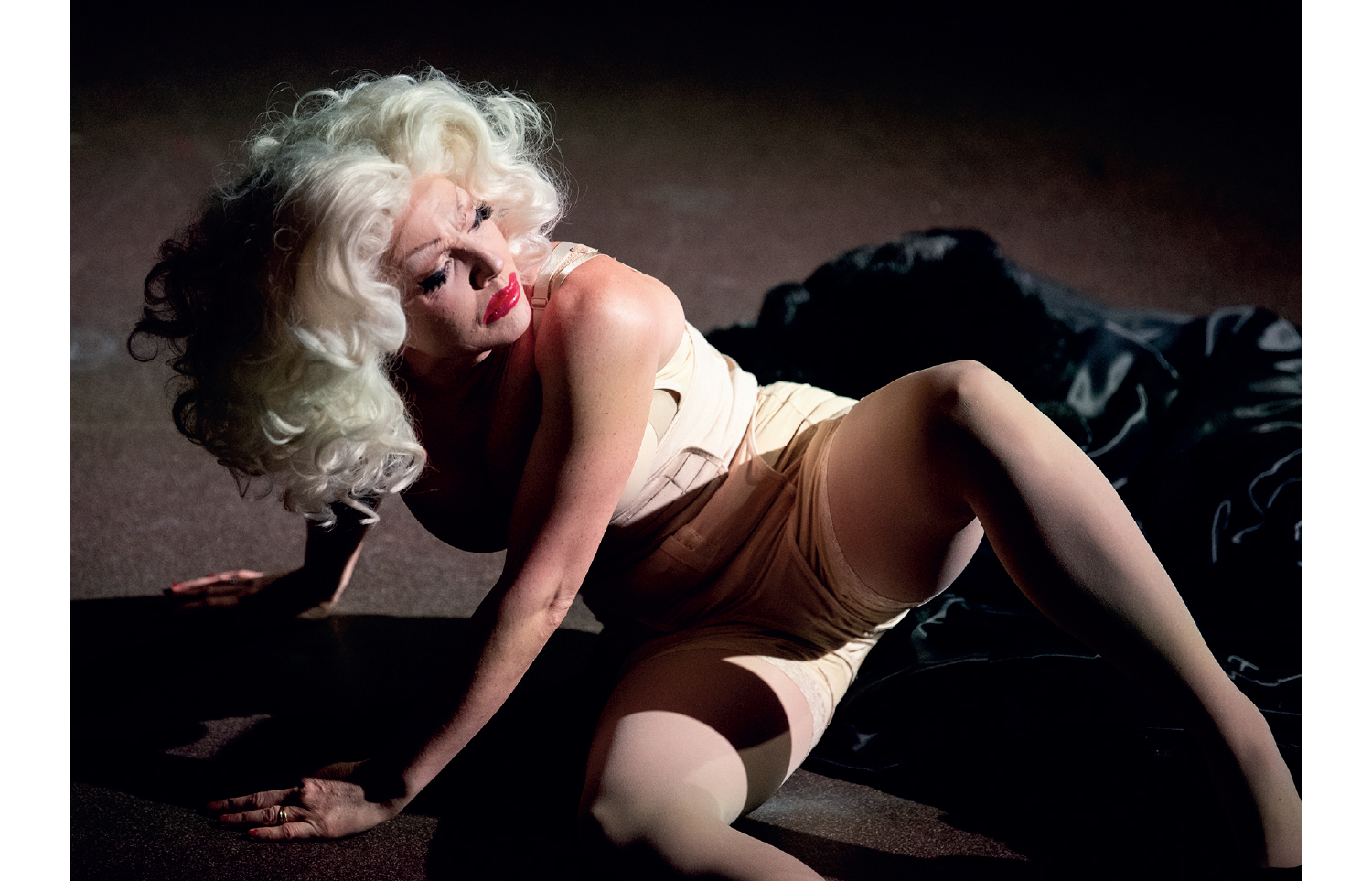Hector Berlioz dismissed Handel as ‘that tub of pork and beer’ but it wasn’t always like that. Picture a younger, sexier Handel, rocking into Rome aged 22 and challenging Scarlatti to a keyboard duel. The Italian elite couldn’t get enough of Il caro Sassone, ‘the darling Saxon’, and he repaid them with 80-odd short Italian cantatas: little controlled explosions of character, colour and flamboyant melody in which his whole future career as a musical dramatist can be heard in concentrated form.
This was an encounter with a genuinely evil work of art
For the London Handel Festival, the director Adele Thomas staged four of these pocket-operas. The setting was Stone Nest, a domed former church, and the performance took place in the round. A period-instrument orchestra under Laurence Cummings (who seems to be game for anything) ringed the space, tears of glitter smudged upon their faces. There was a hint of smoke, plus flickering atmospheric lighting (by Josh Pharo) and surtitles projected on the walls. That was all it took – that and the raw emotive power of Handel’s music, as realised by five singers, a dancer and Thomas’s direction, which took words and music at face value and focused ever more intensely upon the characters’ pain.
So countertenor James Laing strolled palely about as a sinister maître d’. The dancer Jonathon Luke Baker, booted and bare-chested, moving with panther-like physicality as the eternal lover and betrayer. Between them, they provided narrative continuity, while improvisatory linking music by Héloïse Werner bridged the gaps between the individual cantatas. Handel himself, meanwhile, burned, languished and raged. Patrick Terry’s voice glowed and then cracked as Chloris pleaded with the shade of the dead Thyrsis. The vengeful Armida could be heard – faintly at first in the heights of the church, then swooping down, voice blazing. Nardus Williams was the soloist here, and she just gets better and better.
As Hero, Soraya Mafi poured hot, plangent gusts of grief over the body of Leander – straddling and then attempting to lift the inert Baker, all without any audible effect on her ardent, expressively shaped singing. And finally, Claire Booth – playing the doomed Agrippina as a surreal Norma Desmond – snarled, hissed and sobbed her way through a soliloquy that ended with her contorted on the floor, stripped to unflattering shapewear but still sounding majestic. You couldn’t bear to look; you couldn’t bring yourself to look away. This was an electrifying piece of advocacy for works that many would regard as footnotes to Handel’s career.
Birmingham Opera Company’s first new production since the death of its founder Graham Vick posed an urgent question: will the company find new ways to build upon Vick’s radical spirit, or simply replicate his mannerisms? Much about this staging of Brecht and Eisler’s agitprop music-drama The Decision felt like business as usual – the derelict factory, the promenade format; the exciting-disorienting sensation that we were all part of the action (the venue was labelled ‘Party HQ’, and we were given red scarves to wear). And naturally there was the BOC community chorus, clad in red overalls and singing with unvarnished energy in a space that left little room for emotional distance, or escape.
It was an interesting, if unsettling, experience: an encounter with a genuinely evil work of art. The Decision asks whether it’s right to kill in the name of socialism, and answers with a forceful ‘Yes’. It’s a chilly, doctrinaire piece of work, interesting today primarily for Hanns Eisler’s score. The hectoring fanfares, thunderous drums and beefy mass choruses were conducted with impressive precision (given the challenges of the space) by Alpesh Chauhan. There was also a bluesy, Kurt Weill-ish solo song for a male vocalist who, in keeping with the collectivist vibe, was not singled out by name.
The horrible thing was that you really did end up moving with the crowd – feeling your feet lock into rhythm, and obeying the loudly whispered orders of people who address you as ‘comrade’. As an object-lesson in the power of totalitarian art, it succeeded. I hope that’s all it was. The programme book mentioned the authors’ opposition to Nazism and later persecution by McCarthy in the ‘land of the free’ (their scare quotes). No word on what they did next: namely, serve as willing propagandists for a police state founded on the same murderous principles expounded in The Decision.
Well, we’re all adults here, aren’t we? We can distinguish art from ideology. Even so, director Anthony Almeida might perhaps have been more circumspect about the scene in which a profiteering merchant slit a worker’s throat and drank human blood from a ritual goblet. Not even Brecht went quite that far. Anyway, BOC is clearly in good working order and a large-scale new production is being planned for next year. For now, The Decision has fulfilled one function of art, at least: it left me troubled and asking questions.







Comments